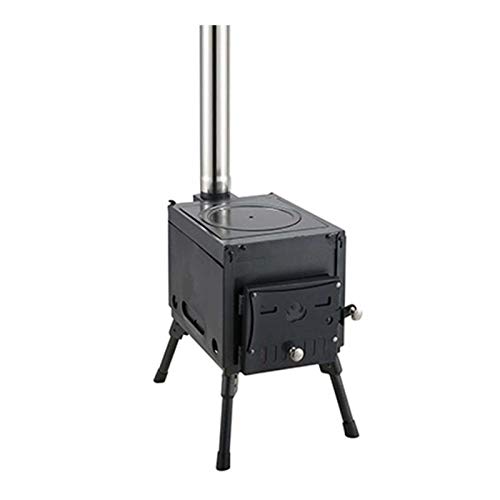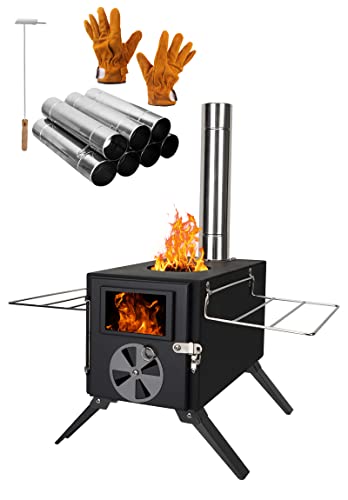20 Amazing Quotes About Stove Wood Burning
페이지 정보

본문
 How to Properly Start a wood burning fireplace Burning Stove
How to Properly Start a wood burning fireplace Burning Stove Wood stoves can be an excellent method to reduce energy consumption and warm the room. However, they need some level of maintenance.
Wood stoves can be an excellent method to reduce energy consumption and warm the room. However, they need some level of maintenance.Many modern wood stoves meet EPA emission guidelines. Look for an EPA sticker either under or on the grate to ensure your stove doesn't generate many harmful pollutants.
How to Start a corner wood heater (visite site) Fire
The smell and sound of a woodfire can be an enjoyable addition to any house. It's important to know how to create a fire on your stove. Incorrect techniques may lead to the fire not to burn well, and may produce creosote or smoke. The tips below will help you start a fire that will heat your home with the least effort and ensure your safety.
Check the condition of your logs and coals before you begin a fire. If they're damp, it will smother your fire and hinder proper burning. You might want to open the chimney to get rid of any ash that's fallen into the stove.
Begin by putting a handful of small woodburners, dry pieces of newspaper in your stove. This will help ignite the fire. Once the tinder and kindling are beginning to burn, you can add the larger kindling pieces on top. This should be done in a crosshatch pattern so there will be air between each piece of wood.
If you have wood stoves that have an automatic combustion control, it will automatically feed an air stream that is controlled to your flame as it heats. This will enable the fire to burn at a steady rate without having to open the stove door to maintain it.
It is important to not use too much tinder, since this can lead to an unburned fire that burns at an excessive rate and doesn't use the fuel as efficiently as it can. Once you've got a good foundation in your stove that is made of sparks, tinder and kindling, start the main flame by laying down two large base logs on the grill. Then, add an additional layer of smaller logs perpendicular to these and on the top of the base logs. This "top-down" method of building a fireplace will produce an effective and long-lasting fire that doesn't completely engulf larger base logs.
Close the damper after your fire has been established and kept it closed. Doing this too soon could cause the fire to get smothered and not allow for proper air flow, which can reduce its efficiency.
Add Wood
Stoves can be used to heat your home efficiently and also save you money. They can be used by themselves or in conjunction with a furnace or central heating system to provide the additional heat required in large houses or homes with many rooms. Many of the new stoves that are clean burning available on the market use advanced combustion principles that can separate the burning volatile substances from combustible gases and tar. This is accomplished by providing air at two different stages. The first stage allows for the combustion of volatile compounds, while the second step offers fresh air that is pre-heated. This improves the process of combustion and helps reduce the smell.
The amount of heat that you can get from a stove depends on the species and moisture content of the wood used, and also the size of the logs. To allow the wood to dry, logs should be stored in a ventilated location for a few months prior to burning. If the logs are wet they will create lots of steam, which is essentially wasted energy.
It is best to add wood to the pile in intervals and not all at one time. In addition, adding too much wood burner fireplace at once causes the temperature inside the firebox to rise, and creates a vortex that draws smoke and volatile compounds that have not been burned back into the flame which can reduce your stove's efficiency.
You should avoid the use of other combustibles, like cardboard or paper in your stove, because they are not wood and have different physical properties that cannot be burned without causing dangerously high temperatures and a lot of emissions. It is not recommended to burn compressed combustibles such as wood briquettes as they differ in physical and chemical composition from firewood. They are also not type-approved to be burned in wood-burning stoves.
It is essential to have a professional install and test your wood burning stove. A certified WETT technician can examine your stove to make sure it is safe and reliable. They will also ensure whether your chimney is working properly. These experts can also provide maintenance services to keep your chimney and stove in tip-top shape. They can check the areas that are accessible to your chimney to determine if there is leakage and fix any issues that are discovered. They will also make sure that the occupants of the home understand and follow the fire evacuation procedure in the event of an accident.
Adjusting the Damper
When you're not using your stove, a damper controls the amount of heat that is lost through the chimney. It can also be used to manage the flame. If the flue is open but the damper is closed, the fire will not burn properly and smoke will erupt into your home. You can adjust your damper to ensure the best flames by testing different positions.
Typically, you should keep the damper open enough to let air flow in and out of the flue when a fire is burning. This allows the fire to start a fire and keeps it lit so you can enjoy it for hours. The proper opening will stop the fire from becoming depleted of air and keep it from blowing smoke.
To properly adjust your damper you need to ensure that the fireplace is heated and the wood stove is warm. This will ensure that the chimney is warm and has an adequate draft. Once this is accomplished, the wood stove damper can be adjusted.
After the fire has smolder slightly, you need to close the damper to about three-quarters of its full position. This will prevent the warm room air from escaping into the chimney, while allowing the smoke to escape out of the wood stove.
This is the most effective way to keep the fire from getting too hot while keeping it lit. The draft might be stopped if you close the damper too tightly however a cold breeze can enter your home in the event that the damper is not closed.
By placing your hands on the top of the flue pipe will tell you how much the damper has opened. If you feel a slight draft pressing against your hand, it's likely to be in the open position.
The damper settings can vary from one stove to another and even among different types of wood burning fireplace. You can experiment with different settings to get an idea of the best setting for your stove.
Clean Up
It is important to clean your flue and stove after an incident. This can reduce the chance of a fire in the chimney which is the main cause of fires that are caused by wood stoves. Creosote is a sticky substance which can build up within the stovepipe, can be extremely hazardous. Moisture and unburned particles of wood that are unable to escape the flame are the reason for this chemical. This can also occur when fires are not lit properly.
Regular cleaning can help stop the buildup of creosote. This can be done by sweeping your chimney once every year. It is also recommended to have your stove and fireplace professionally cleaned and checked at least yearly.
It is also a good idea to clean the ash tray and grate it regularly. It is best to only burn wood that has been seasoned since it will create less creosote. It is also an excellent idea to avoid burning cardboard, paper, plastic and other trash items. They can release harmful chemicals for the respiratory tract and the air, which could be released into your home.
It is also important to clean the glass of the wood burning stove on a regular basis. A lot of modern wood stoves are designed with self-cleaning glass, meaning that they do not require much cleaning. If you're unable to make the glass on your wood stove as clean as you'd like, there are stove glass cleaners available that can be used on the window.
Other ways to maintain your wood stove include turning down the vent when you're not using it and slamming doors or windows to improve airflow. This will help keep the fire burning hotter and more efficiently, as it will not need to exert as much effort to circulate air. It is also a good idea to not stack logs or keep them in the flame for long durations of time, since this could cause warping and splitting. It is best to avoid using combustible wood that has been compressed in your wood stove because the paraffin contained within the logs can melt and leak into the flue, which could cause damage.
- 이전글This Week's Most Remarkable Stories About ADHD Private Assessment ADHD Private Assessment 24.10.26
- 다음글Why You Should Be Working With This Bmw Key Replacement 24.10.26
댓글목록
등록된 댓글이 없습니다.

